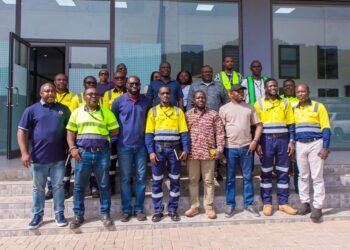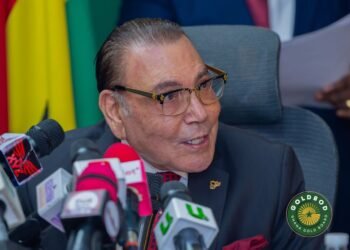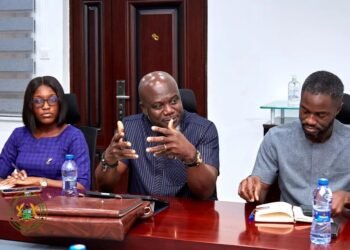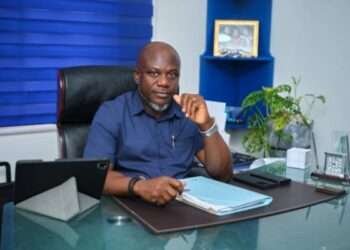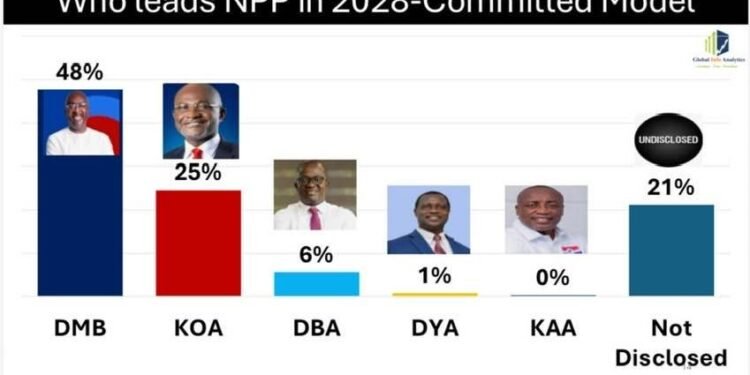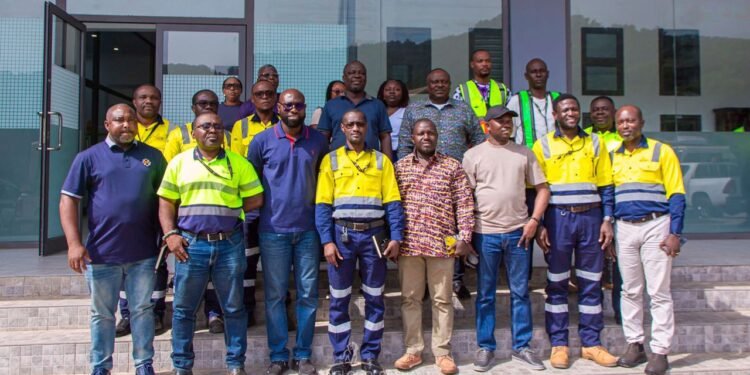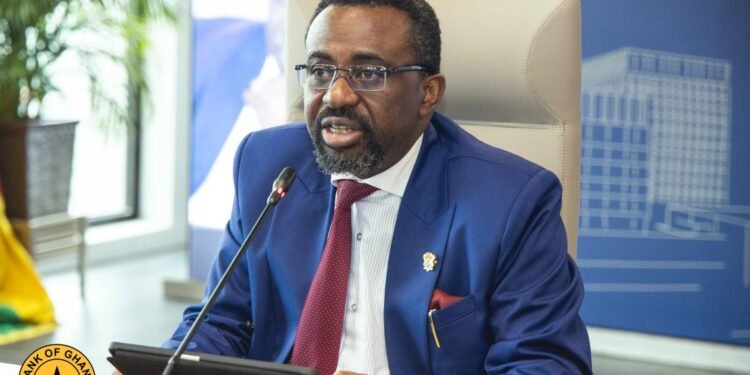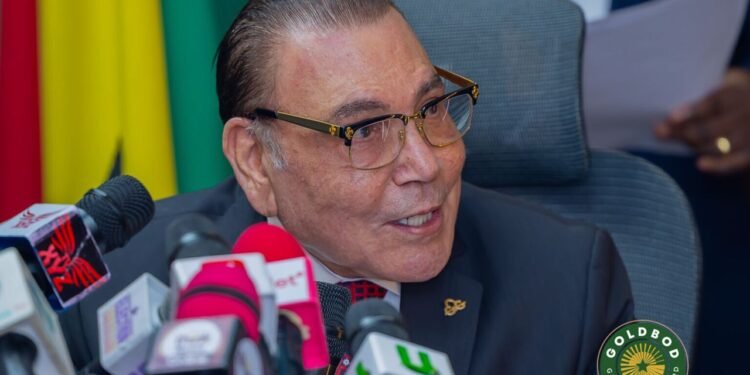The Minerals Commission of Ghana has proudly affirmed that the country’s local content policies are designed to rapidly promote inclusivity within minerals industry.
At the recently concluded 21st Annual General Meeting (AGM) of the Intergovernmental Forum on Mining, Minerals, Metals and Sustainable Development (IGF) in Geneva Switzerland, the Ghanaian delegation showcased the country’s progressive approach to promoting local content and inclusive strategies across the mineral value chain.
“Awuni highlighted how local content and procurement frameworks drive inclusive employment, gender equality, and SME participation across the mining value chain.”
Minerals Commission
While the global mining industry reckons with the need for a more resilient and equitable future, Ghana has emerged as a leading voice in driving transformative reforms within its own mining sector.
At the heart of the country’s mining sector reforms lies a steadfast commitment to maximizing the benefits for local Small and Medium Enterprises (SMEs) and ensuring that the industry’s growth translates into tangible opportunities for Ghanaian businesses and households.
This strategic focus was evident in the remarks delivered by Ms. Victoria Awuni, the Deputy Chief Executive Officer for Policy Planning, Mineral Titles & Local Content at the Minerals Commission.
Minerals Commission and Its Initiatives

The Minerals Commission of Ghana, the primary regulatory body responsible for the country’s mining industry, has been at the leading front of driving these transformative reforms.
Since its Establishment, the Commission has evolved its mandate to align with the dynamic needs of the sector, continuously seeking to enhance the governance and sustainability of Ghana’s mineral resources.
In recent years, the Minerals Commission has intensified its efforts to review and update the Minerals and Mining Policy (2014) and Act 703 (2006), ensuring that the regulatory framework keeps pace with global best practices particularly in terms of value addition.
This comprehensive approach enabled the government to strengthen its oversight, streamline mandates, and introduce innovative policies that cater to the diverse stakeholders within the mining industry.
Alongside these legislative reforms, the Minerals Commission has been actively promoting responsible mining practices, formalising small-scale mining operations, and developing strategic initiatives to harness the potential of critical minerals, such as lithium, for value addition and local beneficiation.
These holistic initiatives underscore the country’s determination to transform its mining industry into an engine of inclusive growth and sustainable development.
Employment and Gender Equality
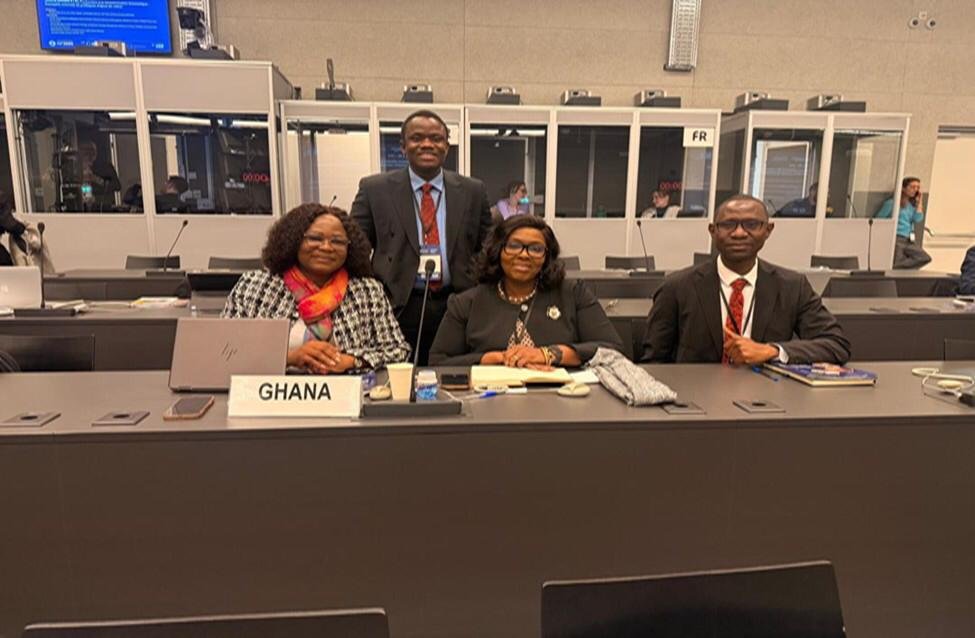
This inclusive approach extends beyond just employment opportunities, as the Minerals Commission has also emphasized the importance of fostering gender diversity within the mining sector.
By creating enabling environments and targeted programs, the government aims to ensure that women are not only represented but also actively contributing to the industry’s transformation.
Alongside the local content initiatives, the Ghanaian delegation also showcased the positive impact of corporate social responsibility (CSR) programs undertaken by mining companies operating within the country.
Ms. Awuni highlighted a range of initiatives, including ICT training, the provision of healthcare and water facilities, the construction of recreational amenities, and the development of critical infrastructure such as roads.
These CSR projects have directly benefited local communities, demonstrating the industry’s commitment to supporting the broader socioeconomic development of the regions in which they operate. By aligning these efforts with the government’s inclusive vision, the mining sector has the potential to serve as a catalyst for sustainable growth and community empowerment
Value Retention and Beneficiation
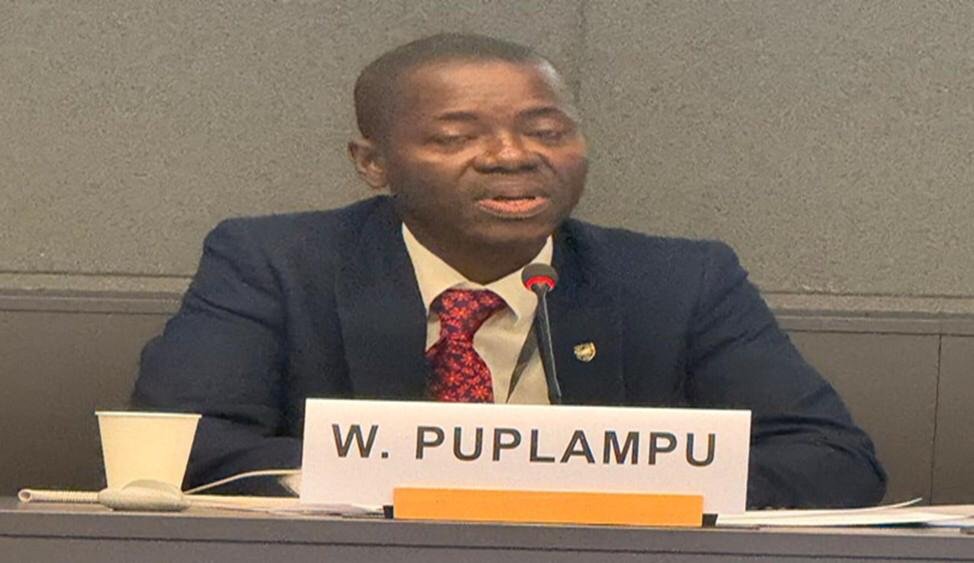
During the Commodity Session on Lithium, Mr. Wisdom B. Puplampu, the Assistant Manager for Research and Statistics at the Minerals Commission, also shed light on the country’s strategic potential in the realm of critical minerals.
Highlighting the Ewoyaa Lithium Project, Mr. Puplampu emphasized the opportunities for value retention and local beneficiation.
The terms of the mining lease agreement with Atlantic Lithium’s subsidiary, Barari DV, include a 10% royalty (up from 5%), 13% state participation (up from 10%), and 13% shareholding by the Minerals Income Investment Fund (MIIF).
Furthermore, the requirement for Atlantic Lithium to build a lithium processing facility underscores the government’s commitment to ensuring value addition and generating employment opportunities for Ghanaian youth.
This strategic approach to critical minerals management aligns with the Minerals Commission’s broader objective of strengthening Ghana’s position as a leader in the extraction and processing of both traditional and transition minerals.
By striking a balance between resource extraction and value retention, the government aims to unlock the full potential of the country’s mineral wealth for the benefit of its citizens.
READ ALSO : Basic Education Set for Major Upgrade as Finance Minister Outlines Key Interventions.




